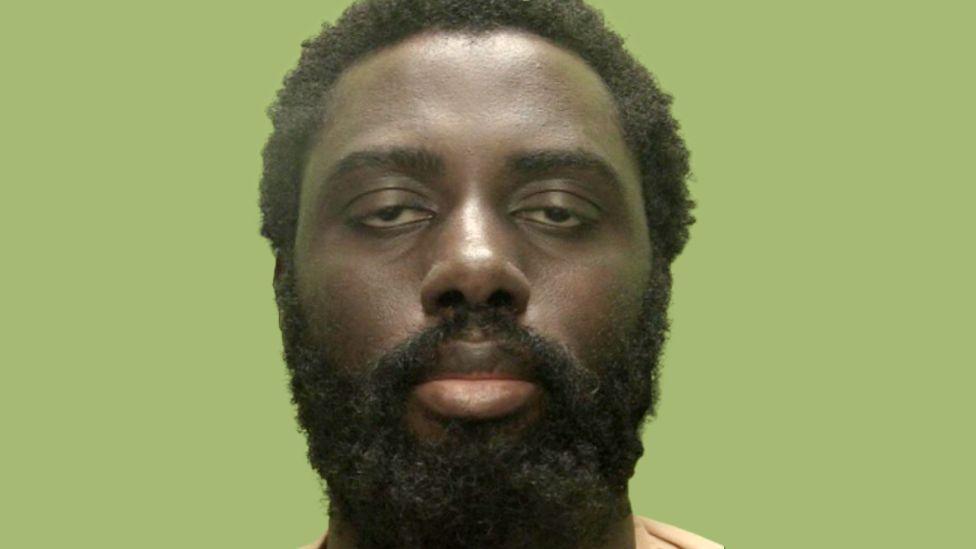The name Valdo Calocane became known across the UK following his arrest in connection with a tragic event that took place in Nottingham in June 2023. This incident, which left three people dead and several others injured, shocked the nation and led to widespread media attention. As the investigation started, the spotlight turned toward Calocane and his motivations, raising questions about what could lead such a devastating act.
The Nottingham Attack: What Happened?
In the early hours of June 13, 2023, a series of violent attacks occur in Nottingham. The events began when two university students, Grace Kumar and Barnaby Webber, were fatally stabbed as they walked home after a night out. Shortly after, a third victim, Ian Coates, a school caretaker, was found dead in a van, which police believe was stolen by the assailant. The attacker used the stolen vehicle to drive through the city and attempted to run over several pedestrians, injuring three more people.
This incident shocked the city of Nottingham, a vibrant university town, and left the entire nation in mourning. Within hours, the police had arrested Valdo Calocane, a 31-year-old man, in connection with the attacks. His actions brought up many questions about his background, mental state, and possible motivations for such horrific violence.
Who is Valdo Calocane?
Valdo Calocane is the man accused of carrying out the Nottingham attacks, who is a British national originally from Guinea-Bissau in West Africa. His background reveals that he moved to the UK with his family at a young age, settling in the East Midlands. According to reports, Calocane was an intelligent individual with a promising future ahead of him. He pursued higher education at the University of Nottingham, where he studied mechanical engineering and graduated with high marks.
Despite his academic achievements, Calocane’s later years appeared to be marked by personal struggles. Former acquaintances and neighbours described him as quiet and reserved, with few people claiming to know him well. There is evidence to suggest that Calocane may have been grappling with mental health issues, although this aspect of his life remains unclear as authorities continue to investigate the circumstances leading up to the attack.
The Arrest and Legal Proceedings
Following the Nottingham attacks, Valdo Calocane was swiftly apprehended by law enforcement and charged with three counts of murder and three counts of attempted murder. His arrest marked the beginning of an intensive investigation into his actions, motives, and mental state. In his first court appearance, Calocane showed little emotion, and he entered no plea regarding the charges.
The legal proceedings are still ongoing, with the court system working to crackj the full details of the case. Authorities are investigating whether there were any ideological motivations behind the attack, but early reports suggest that there may not be any direct links to terrorism or extremist groups. Instead, much of the focus has been on Calocane’s mental health, his social isolation, and his struggles in the years leading up to the incident.
Impact on Nottingham and the Nation
The events in Nottingham had a profound impact on the city and the broader UK community. The victims, Grace Kumar and Barnaby Webber, were both university students with bright futures ahead of them, and their loss was deeply felt by their families, friends, and fellow students.
In the days following the attacks, the city of Nottingham came together in a show of solidarity. Vigils were held to honour the victims, with thousands of people gathering to pay their respects and express their grief. The University of Nottingham, where Kumar and Webber studied, played a central role in these commemorations, offering support to the grieving families and the student body.
Across the UK, the incident reignited discussions about public safety, mental health, and the pressures facing young people, especially in urban areas. While authorities emphasised that attacks like the one in Nottingham are rare, the event served as a stark reminder of the unpredictability of violence and the importance of community support in times of crisis.
Mental Health and the Criminal Justice System
One of the key areas of focus in the investigation into Valdo Calocane’s actions has been his mental health. While details remain scarce, it is not uncommon for violent incidents to raise questions about the role of mental illness in criminal behaviour. Many experts argue that the criminal justice system must take a more nuanced approach when dealing with individuals who may be suffering from severe mental health issues, as ignoring these factors can lead to tragic outcomes.
Calocane’s case has brought to the fore discussions about how mental health is addressed in the UK’s legal system, particularly when it comes to identifying and supporting individuals who are struggling.
Media Coverage and Public Perception
The media’s coverage of Valdo Calocane and the Nottingham attacks has been extensive, with news outlets focusing on everything from his background and education to his mental health and possible motivations.
Some critics have called for more responsible reporting when it comes to individuals accused of violent crimes, particularly in cases where mental health may be a factor. Sensationalist headlines and speculation can contribute to public fear and misunderstanding, while also potentially compromising the fairness of the legal process.
In the case of Valdo Calocane, it is essential for the media to provide balanced, fact-based reporting that respects both the victims and the ongoing investigation. This approach ensures that the public remains informed without jumping to conclusions or stigmatising those who may be struggling with complex issues.


